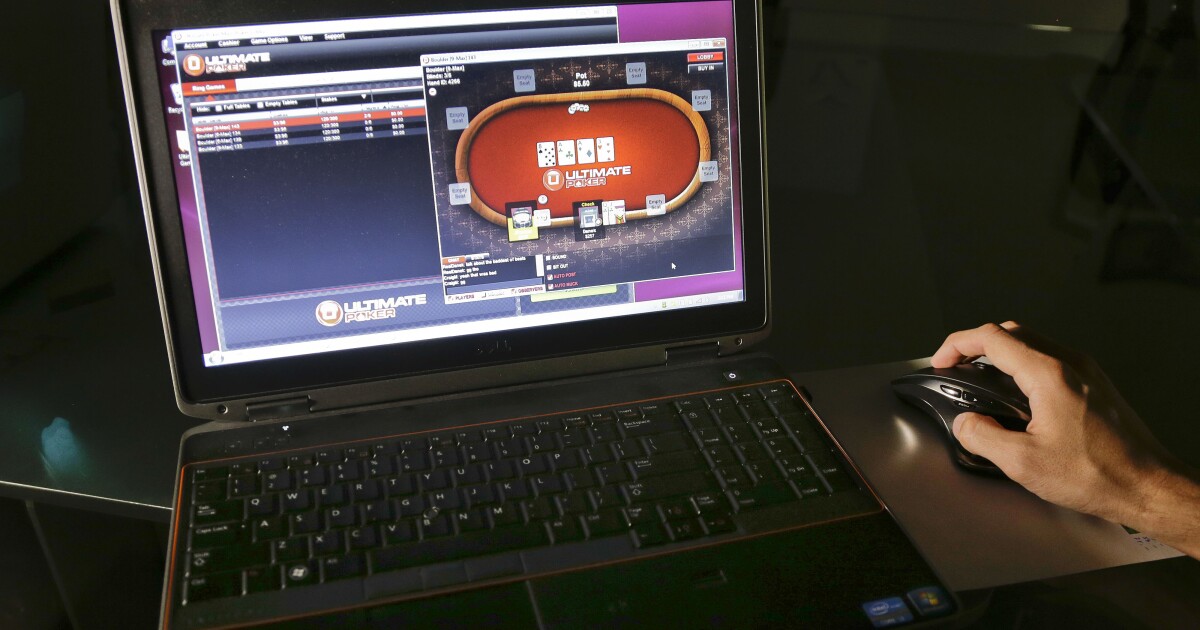
You do not need to leave the state of Virginia, let alone your house, to gamble these days.
While it can be a game for some, more than 145,000 people in the commonwealth suffer from problem gambling. As I started looking into the numbers to see who is impacted the most, and what resources are available to help, I met Tom Dozier.
“I started gambling very, very young,” he says. “When you start winning a few times, that is quite a rush.”
He says it was a rush that absorbed most of his life. Tom’s vice was horse racing.
“If you’ve ever seen a racing form, the past performances will look like hieroglyphics to a normal person, but for me, I knew every single thing,” he says. “The minute [I was] about to get out of the game, it’s kind of like the mafia — it pulled [me] right back in by hitting another bet.”
The Virginia Council on Problem Gambling (VCPG) reports that nine out of 10 Americans have gambled at least once, and six out of 10 Americans gamble at least once a year.
“That leads to the simple question of, ‘Who gambles?’” questions Professor Bob McNab with Old Dominion University. “If you take access and then you take the propensity to gamble, it turns out that for the lottery, and many other forms of gambling, lower-income households tend to spend a higher proportion of their income gambling.”
McNab has looked extensively into the impact of gambling and problem gambling on Hampton Roads and says, “What we find in the research is the people who gamble frequently buy small amounts. They go, they buy the lottery ticket [or] they buy this scratcher, and they do that daily or weekly, versus someone that sees a billion-dollar headline on the news and goes and buys a ticket every six or seven months.”
McNab says it also comes down to accessibility for people who gamble. He tells me that when developers look to build casinos in areas like Hampton Roads, they know it likely won’t rival Las Vegas or Atlantic City and the majority of the visitors will be local.
I found some statistics to back up his research: According to the Virginia Lottery’s Gaming Update, during its board meeting in October, Rivers Casino in Portsmouth was reported to be a strong economic driver, in part because of the guest orientation.
Here’s a breakdown of where the casino’s visitors were from, according to the gaming update:
- 30.3% of visitors were from Norfolk, Virginia Beach and Chesapeake
- 16.64% were from Portsmouth
- 10.13% were from Newport News
- 17.64% were from National/Out-Of-Market
- 25.29% were classified as “other”
Statistics show a portion of those individuals will experience problem gambling. Carolyn Hawley, President of the Virginia Council on Problem Gambling says taking preventative measures and raising awareness could reduce the chances of developing concerning gambling habits.
“We want to talk to people before they develop that problem,” said Hawley.
She tells me that the expansion of legal gambling is reflected in the number of people who ask for help.
“Year after year, we are seeing those numbers increase. The last number we had was a 35% increase in people who then go on to treatment, which is huge,” she says.
In 2022, VCPG reported getting over 8,000 calls; 65% were from men. In response to the increase in numbers over the years, Virginia has dedicated more money and resources to hiring qualified providers and creating a treatment network for those who need it.
Dozier is one of the success stories who is now on the board for the Virginia Council on Problem Gambling.
“They don’t look like you, they don’t feel like you, they don’t even smell like you, but the thing is, their story is just like you. Then they start holding mirrors up to you and you start holding yourself accountable and here I am. Yeah, I just reached eight years,” he says.
Dozier says VCPG aims to help individuals and families who are struggling.
“We’ll get you in the right direction, we’ll get you to work; whether it’s counseling, whether it’s going to meetings, whether it’s going to this program, whether it’s an in-house rehab, and things like that. We will get you there,” he says.
The road to recovery isn’t easy though, and sometimes it can be tough to acknowledge if you or someone you love has addictive behavior when it comes to gambling.
VCPG has some really helpful information online to help you spot red flags. In part, the group says, “The symptoms include increasing preoccupation with gambling, a need to bet more money more frequently, restlessness or irritability when attempting to stop, “chasing” losses, and loss of control manifested by continuation of the gambling behavior in spite of mounting, serious, negative consequences. In extreme cases, problem gambling can result in financial ruin, legal problems, loss of career and family, or even suicide.”
If you or someone you know may need help, call 1-800-GAMBLER.